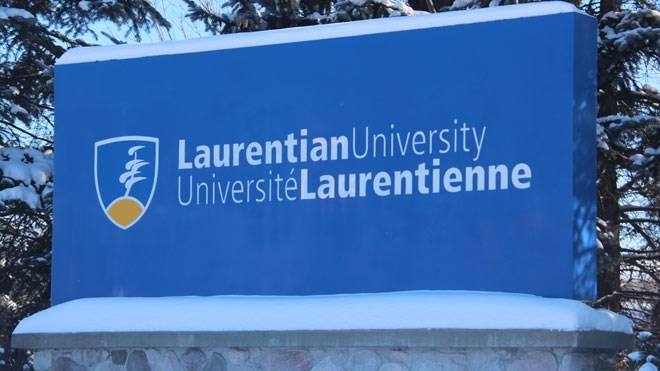A judge has ruled in favour of Laurentian University in its dispute with Ontario Auditor General Bonnie Lysyk over whether LU is required to provide the auditor general’s office with privileged information.
Chief Justice Geoffrey Morawetz heard from lawyers on both sides on the matter Dec. 6, and issued his decision today, Jan. 12, more than a month later.
Laurentian declared insolvency last winter, and is undergoing court-supervised restructuring under the Companies’ Creditors Arrangement Act (CCAA).
It is also undergoing a value-for-money audit by the auditor general’s office, but has refused to provide privileged (confidential) information to the audit team.
Due to this dispute, Lysyk has asked the courts for an interpretation of what is allowed for under the Auditor General Act.
At issue in the case are a couple of sections of the Auditor General Act, most notably section 10, which deals with the “duty to furnish information” to the auditor general, and how that information must be treated.
In his decision, Morawetz said the Auditor General Act does not “demonstrate a clear and unambiguous intent to abrogate solicitor-client privilege.”
“In my view, s. 10 falls short of evincing an intention to abrogate privilege in a clear and unambiguous manner,” he said.
“Section 10 does not clearly state that an audit subject must disclose privileged information. Further, s. 10(1) and (2) do not mention privilege. At best, they are general disclosure provisions and, in my view, cannot be interpreted as authorizing the Auditor to access or compel the disclosure of privileged information.”
Morawetz said that “a declaration shall issue” that section 10 of the Auditor General Act “does not require audit subjects to give the Auditor information and records that are subject to solicitor-client privilege, litigation privilege, or settlement privilege.”
Another “declaration shall issue” that the same section of the Auditor General Act “does not give the Auditor a right to free and unfettered access to information and records that are subject to solicitor-client privilege, litigation privilege, or settlement privilege.”
During last month’s court hearing, lawyers for Laurentian University argued that the Auditor General Act, “properly interpreted, allows for, but does not require, the production of privileged information.”
Counsel for the auditor general’s office admitted that the legislation “could have been clearer” when it comes to whether audit subjects are required to provide privileged information, but maintained that “section 10, read as a whole, in my submission, provides the auditor general right of access to grant recipients’ privileged information and documents.”
As consensually agreed by lawyers for Laurentian and the auditor general during last month’s court hearing, the auditor general’s office will pay $25,000 in legal costs, covering the costs of the court application.
Ontario’s auditor general was tasked with the value-for-money audit of Laurentian this past spring by the Ontario legislature’s Standing Committee of Public Accounts.
The Ontario legislature also issued a rare Speaker’s warrant last month at the behest of the Standing Committee of Public Accounts.
The Speaker’s warrant orders Laurentian president Robert Haché and Claude Lacroix, now the former president of the university’s board of governors, to release a long list of documents, including privileged documents, by Feb. 1.
Laurentian had offered to release some privileged documents to the legislature, but not everything that was asked for, a situation MPPs say is unacceptable.
The university is asking the courts for a stay of the Speaker’s warrant that orders them to release the aforementioned documents.
Laurentian University issued a statement Jan. 12 regarding Morawetz’s ruling.
“The decision released today by Chief Justice Morawetz of the Superior Court of Justice provides welcome clarification regarding what information and documents the Auditor General is entitled to receive,” the statement said.
“The Chief Justice confirmed that the Auditor General is not entitled to obtain privileged information.”
Laurentian said in its statement that apart from the narrow issue of privileged information, which the Court has now determined Laurentian is not required to provide, the University has cooperated with the Auditor General’s inquiry.
“Laurentian has authorized and encouraged all staff to participate in interviews with the Auditor General of Ontario, provided no privileged information is relayed,” said the statement.
“We have also granted her office direct access to our entire financial database, enrollment system, as well as a substantial volume of other non-privileged documentation covering many decades.
“We will continue to provide the Auditor General with the documentation and non-privileged information she needs, and is entitled to receive, in order to perform her audit.”
The university goes on to say that it is “on a difficult and necessary journey of transformational change.
“As we continue the hard work of restructuring, we are working through a complex process involving many stakeholders with the assistance of a court-appointed Monitor and under the direct supervision of the Court,” the statement said.
Referring to a financial package provided by the province last month, the university said it remains ”confident that Laurentian will emerge as a fully restructured, financially viable, and renewed Laurentian University for the long-term.”
